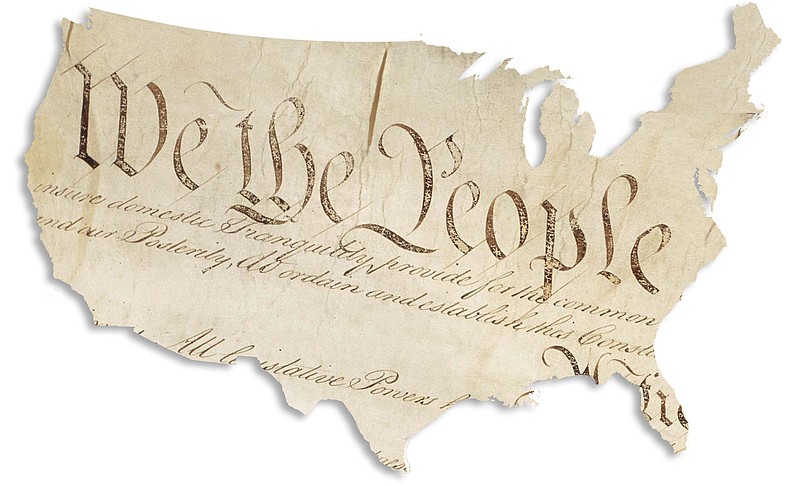EDITOR'S NOTE: This article is part of Religion: Got questions?, a series answering your biggest religious questions. Each week, we will answer one submitted faith question. To send a submission visit https://bit.ly/30cTYzx or email wmassey@timesfreepress.com.
Question: What does the concept of religious freedom in the U.S. Constitution mean? Does it apply to all religions?
Religious freedom is an essential part of the American identity, said Monica Burke, research assistant at the Heritage Foundation. The nation's founders included it at a time when many recently arrived Americans had fled persecution from the state-sponsored church of England.
Freedom of worship, enshrined in the U.S. Constitution's First Amendment, has become an integral part of the U.S. economy, too, with around $1 trillion contributed to it each year because of religion, according to a 2016 study. America's success is built on religious freedom, Burke said.
"We've experienced great prosperity that has gone hand-in-hand with religious freedom, and that pluralistic approach has benefited us very well," she said.
The part of the First Amendment related to religious freedom reads, "Congress shall make no law respecting an establishment of religion, or prohibiting the free exercise thereof." The line allows Americans to practice whichever religion they choose, or no religion, and the government is unable to establish an official religion or create laws that inhibit a person's religious practice.
A growing number of Americans believe religious freedom in their country is decreasing compared to a decade ago. A 2019 survey by the evangelical research firm Barna Group found the percentage of Americans who believe religious freedom in the country is getting worse has increased from 33 percent in 2012 to 43 percent saying it was worse in 2017.
The ongoing legal battles between religious freedom and LGBTQ rights are the latest chapter in the American legal system's difficulty in interpreting the First Amendment to the U.S. Constitution. Since 2015, legal activity related to religious freedom and LGBTQ rights has increased and become more one-sided for each camp rather than being comprehensive, according to analysis by the Christian advocacy group the Center for Public Justice.
Much like the Second Amendment, the constitution's first is ambiguous. Several researchers said the concept works well in theory but not always in practice.
Winnifred Sullivan, Indiana University provost professor of religious studies and author of "The Impossibility of Religious Freedom," points to a court case in Florida in the 1990s. The case concerned city cemetery regulations that prohibited "vertical" memorials in favor of memorials that were flush to the ground and could be moved over. Opponents to the cemetery rule said their vertical memorials were religiously motivated and required protection through religious freedom laws.
The court ultimately decided the gravesite memorials were not religious, despite many of the people who had put them up saying they were religiously important, Sullivan said. The court's decision often stuns people, she said, and underlines the constraints of religious freedoms.
"We don't really know what religion is and we can't tell whether something is religious or not," she said. "And if we can't tell whether something is religious or not, it's impossible to fairly administer these laws."
Instead, religious freedom cases are often decided individually since the government is barred from defining religion and creating parameters for laws concerning religion, Sullivan said. Any interpretation becomes a contradiction, Sullivan said.
"On the one hand we say, 'The government shouldn't be defining religion,'" Sullivan said. "But on the other hand we say, 'But the government should be protecting religious people.' But there's no rule for what counts as religion."
Contact Wyatt Massey at wmassey@timesfreepress.com or 423-757-6249. Find him on Twitter at @News4Mass.
